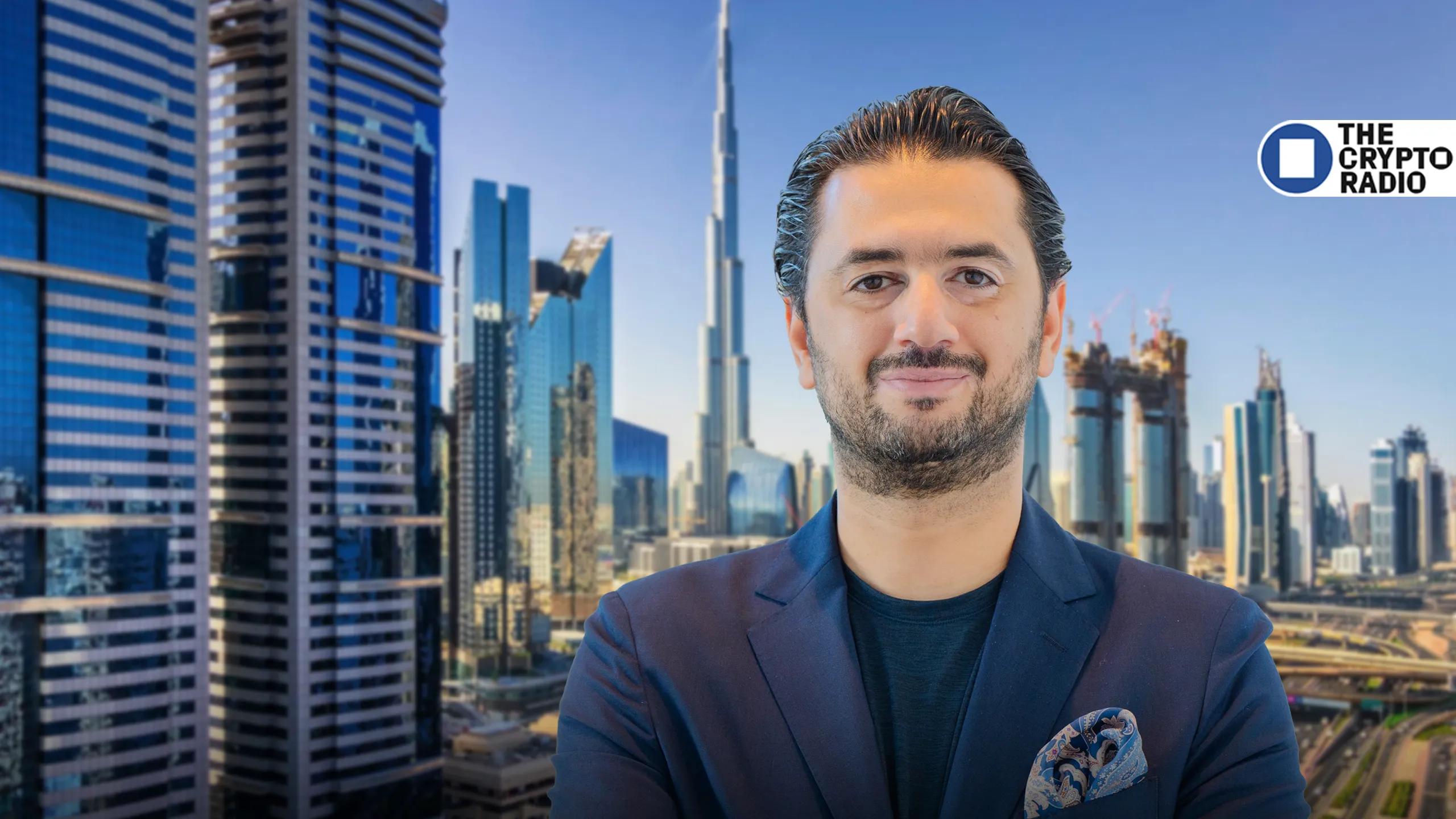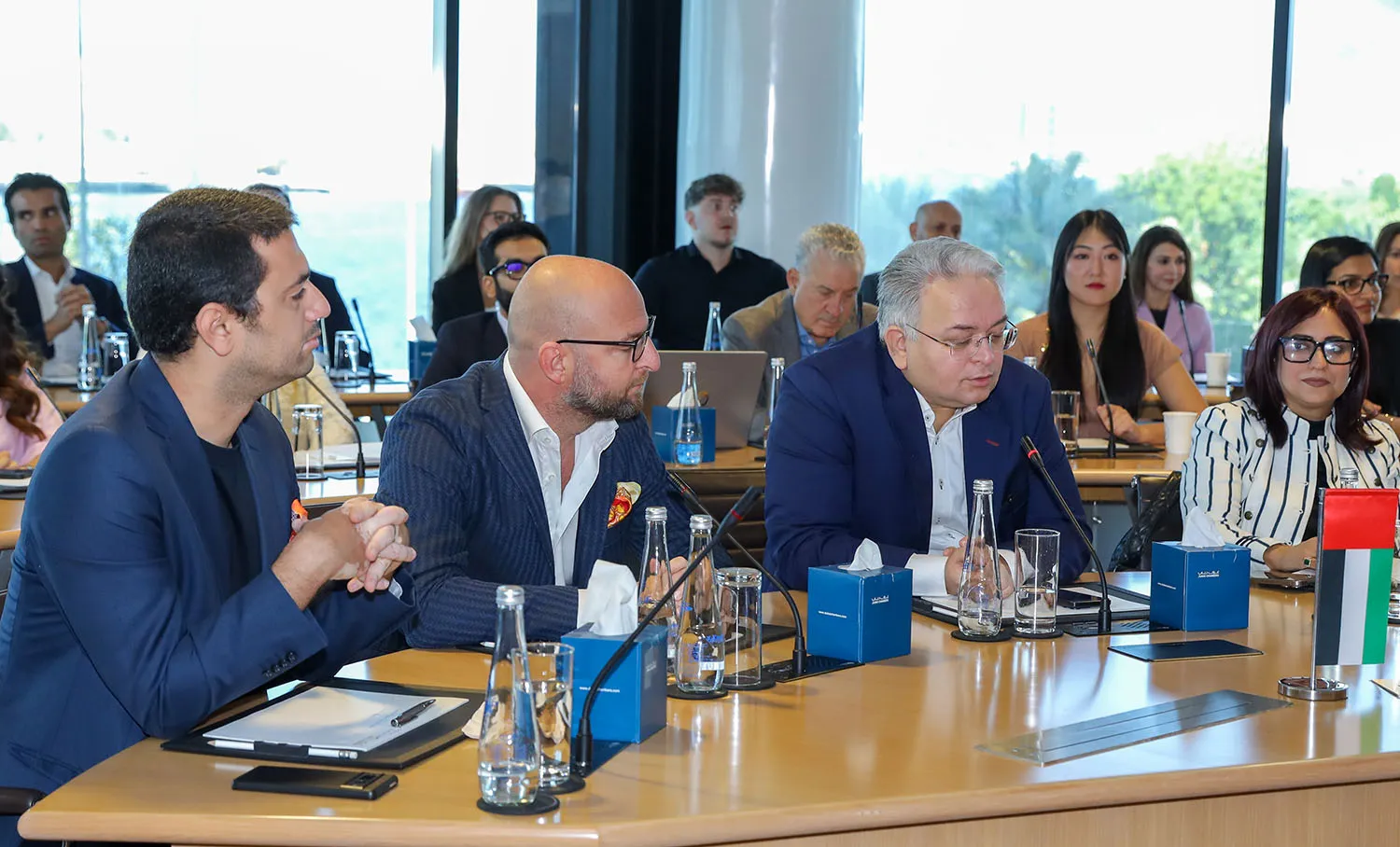Saqr Ereiqat sees UAE as the new Switzerland
'Where else can Chinese, Russian, Iranian, and American money coexist harmoniously?' asks the blockchain advocate

Saqr Ereiqat still remembers stepping off the plane in Abu Dhabi on July 29, 2008.
“It was as if someone slapped me in the face,” he told The Crypto Radio, laughing about the blast of Gulf heat. He had arrived in the middle of the global financial crisis – and in the middle of his own search for belonging.
“I’m Palestinian. I’m Muslim. I was born and raised in Germany,” he said. “Unfortunately, in Germany that means you’re constantly, one way or another, prosecuted. You’re never just a normal person.”
It wasn’t until university in London that he experienced what inclusion could feel like. “After a couple of weeks, people were like, ‘Hey, you’re British now,’” he said. When graduation came, he knew he wouldn’t go back. “So I moved – the UAE is my chosen home.”
From cranes to code
Ereiqat’s first step in that new home wasn’t in tech at all. “I came here to trade construction equipment,” he said. “At the time, Dubai had the most tower cranes, the most truck mixers.” But soon after he arrived, the crash froze projects across the Emirates. “I applied to one job,” he recalled. “I said, what’s the biggest name in my industry? The answer was IBM.”
That single application launched a twelve-year career advising governments and corporations in twenty-three countries. “With IBM, I was able to advise the prime minister’s office of the UAE,” he said. “When someone does their car registration or insurance, I have a piece of code in there.”
His turning point came in 2014 when he and his team proposed blockchain to the Dubai government – years before most had heard of it. “I remember I had a slide, and that slide said, ‘blockchain is not Bitcoin,’” he said. “We were constantly beating our head against the wall trying to get the message across.”
That proposal helped shape the world’s first government blockchain strategy. “Look what the leadership of the UAE has done in just one generation,” he said. “This was a desert. This was a place where people wouldn’t necessarily go, and now we’re the top destination on Trip Advisor.”
Mapping the blockchain boom

Members of Dubai’s digital-asset ecosystem meet under D2A2, the bridge between innovators and regulators. Photo: D2A2
After leaving IBM, Ereiqat co-founded Crypto Oasis, a network built to measure and support the country’s fast-growing blockchain and web3 community. “We started wanting to write ten pages to provide a little bit of insight,” he said. “We ended up with 300 pages – people were upset we didn’t include them.”
That effort evolved into the Dubai Digital Asset Association (D2A2), where he now serves as Secretary General. “We act as a not-for-profit association focused on the digital-asset space,” he explained. “We sit under the Dubai Chamber of Commerce and under the patronage of the Minister of AI, His Excellency Omar Al Olama, in his role as chair of the Dubai Digital Economy Agenda.”
D2A2’s mission is to educate, clarify, and connect. “We’re the first port of call for people who want [unbiased] advice,” said Ereiqat. “When people speak to us, they know there’s no service I’m going to sell on the other side.”
The association has become the conduit between industry and regulator. “We have the regulator sitting on the board with us,” he said. “When VARA [Virtual Assets Regulatory Authority] issues a guidance paper or proposes a law change, we collect feedback from members and go back as one voice. We’ve become the voice of the ecosystem.”
Leadership, infrastructure, and vision
Ereiqat credits the UAE’s rise to decisive leadership. “Emerging technologies shouldn’t be governed by democracy,” he said. “They have to have totalitarian leaders who can drive this forward, because technology is changing so fast.”
He sees that clarity reflected in everything from free-zone policies to early data-center investment. “Dubai was building the right infrastructure when it looked like madness,” he said. “Hundreds of millions invested in ports and data centers before anyone else saw the value.”
Crypto Oasis has now identified roughly 2,400 blockchain-related companies across the UAE. “This isn’t just someone quoting numbers,” he said. “We checked them one by one.”
Balancing innovation and responsibility
Beyond blockchain, Ereiqat is increasingly focused on the ethics of artificial intelligence. “We are playing with fire,” he warned. “AI, ChatGPT, Gemini – all of those, they function in a way that even the people who’ve created them don’t know how they function.”
For him, technology must remain accountable. “Every one of us has the responsibility to change the world for the better,” he said. “I really believe in giving back – it comes from a place of gratitude.”
That outlook has made Ereiqat a kind of crypto diplomat – someone who bridges regulators, entrepreneurs, and global investors to keep innovation and integrity aligned.
The Switzerland of the world

The UAE is carving out its role as the Switzerland of global digital finance. Photo: Unsplash / Alain Rouiller
“When I tell people I live in Dubai now, I always get the same response: ‘Oh wow, Dubai,’” he said. “What wasn’t cool fifteen years ago is now the place everyone wants to be.”
He believes this openness positions the country for its next economic role. “Dubai really is the Switzerland of the world right now,” he said. “The UAE will be the stablecoin destination of the world.”
With more than 200 countries exploring or issuing stablecoins, Ereiqat foresees an international marketplace where they can be freely exchanged. “Try going to a German exchange right now with rubles – they’ll send you home,” he said. “But the UAE is the only place where Chinese, Russian, Iranian, and American money can coexist harmoniously. Everyone trusts the UAE.”
By 2030, he predicts, the country could play for stablecoins the same role London once played for foreign exchange – a neutral bridge for trillions in value.
A mission of gratitude
Ereiqat sees his work as an extension of the UAE’s determination to lead by example. “His Highness Sheikh Mohammed said, ‘We’re going to have everyone be a part of this economy, so everyone becomes a defender of this economy,’” he recalled.
That collective purpose is what transformed both him and the country he chose to call home. “Being in Dubai made me the man who I am,” he said – a reminder that progress, at its best, is deeply personal.



